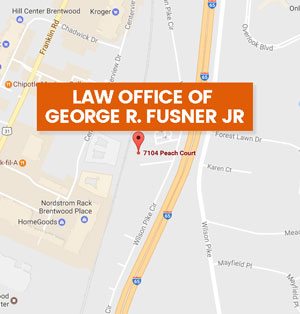Before a teenager in Tennessee is permitted to drive on their own with no restrictions, they must go through what is called the Graduated Licensing Program. There are three phases to this program, according to Geico, all of which must be completed. If you have a teen who has reached the age of 15, you may be wondering what these three phases are and what restrictions each imposes on your teen as they learn how to drive.
In an effort to better help you understand the Graduated Licensing Program, below we outline what each phase of it is.
- The Learner’s Permit Phase
A teen can apply for their learner’s permit when they reach 15 years of age but must be accompanied by a parent or guardian if they are under 18. At the time they apply, they are required to:
- Show proof that they are regularly attending school.
- Show proof of school progress.
- Pass a written and vision test.
A teen who receives their learner’s permit can only drive when they are accompanied by a licensed driver who is 21 years of age or older in the front seat. They cannot drive between the hours of 10:00 p.m. and 6:00 a.m. and can only move on to the next phase after they have had their learner’s permit for 180 days.
- The Intermediate Restricted License Phase
Teens who are 16 years of age or older are permitted to apply for this license as long as they completed the learner’s permit phase. In order for a teen to receive their intermediate restricted license, they must:
- Pass a road skills test.
- Submit a form that certifies they completed at least 50 hours of driving experience of which 10 were done during the night time.
A teen who receives this permit cannot drive between the hours of 11:00 p.m. and 6:00 a.m. and are only permitted to have one passenger riding with them. Because teens are learning how to drive, there is no room for distractions, which are currently responsible for causing thousands of car wrecks each year. The fact is, passengers can serve as a distraction which is why teens are limited to only having one person travel with them.
- The Intermediate Unrestricted License Phase
A teen must be at least 17 years of age before they can apply for their intermediate unrestricted license and must have had their restricted license for at least one year. During this phase, the restrictions mentioned above no longer apply. However, their license will say “intermediate” while they are under the age of 18. Only when the driver reaches the age of 18, graduates high school, or receives their GED will they be eligible for a Class D driver’s license which will indicate that they are under the age of 21.
The Graduate Licensing Program is expected to help prep teens for driving as it requires them to spend a certain amount of time behind the wheel before they can drive on their own. Although teens do need to demonstrate that they have learned how to drive when going through each of the phases, it is essential that they continue practicing their driving with someone who has experience and won’t distract them from operating their vehicle. The truth is, many teens suffer serious injuries or lose their lives in car accidents each year. In 2017 alone, 2,734 teens were killed in automobile accidents [Source: Insurance Institute for Highway Safety].
Many of the car wrecks that involve teens occur because of inexperience and distractions so it is best to help prepare them as much as possible to reduce the chances of them engaging in a collision.
What if my teen was recently involved in an accident in Nashville, TN?
In the event your teenager was involved in a crash and you are looking to learn more about recovering compensation on their behalf for their injuries and medical expenses, contact Nashville, TN car wreck lawyer George R. Fusner Jr. The Law Office of George R. Fusner Jr. works with individuals who have suffered as a result of an accident and helps them obtain the compensation they need and deserve following a crash. If you would like to find out how much your teen may be entitled to receive, contact our office to schedule your initial consultation.




